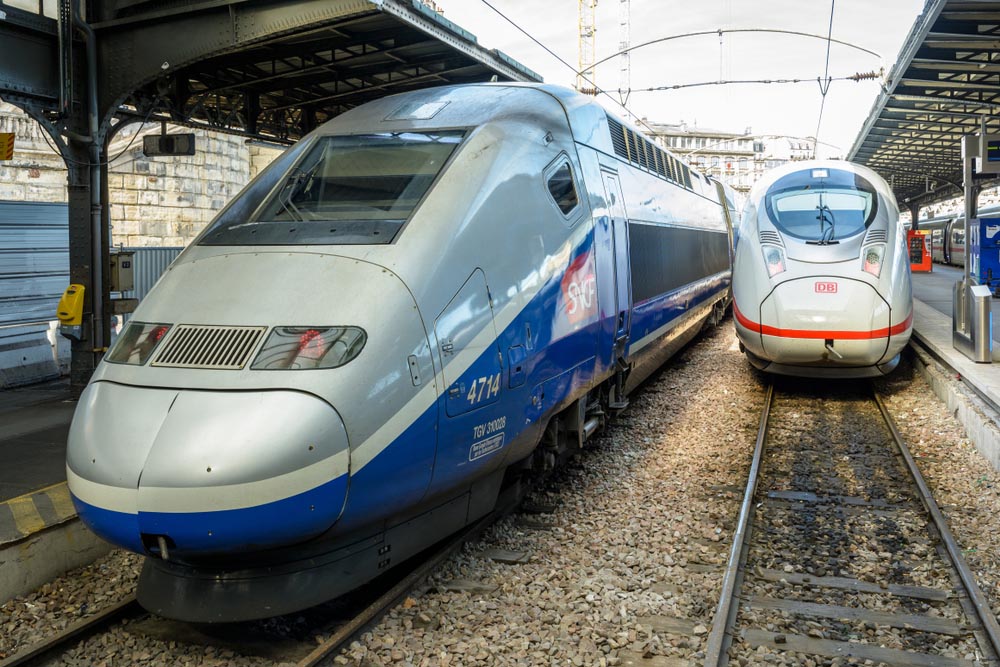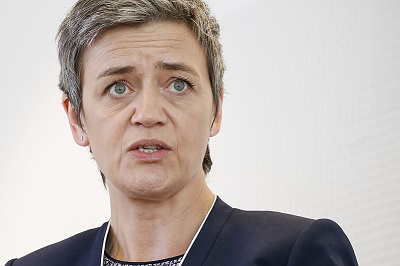Competition law: blocking of Siemens-Alstom merger provokes Franco-German calls for rules changes
Neil Hodge

Earlier this year, the European Commission blocked a Franco-German merger that would have created the world’s second-largest rail company.
The decision to block the deal between Siemens and Alstom has led to concerns over the future of European industry as well as calls for changes to EU competition law.
There’s little point in taking strong measures to preserve a fair market in Europe when other major economies like the United States and China don’t play by the same rules
Guy Harles
Co-Chair of the IBA Corporate and M&A Law Committee; partner, Arendt & Medernach
The Commission stated that the merger raised serious concerns in two main areas: very high-speed trains and the complexity and viability of the proposed remedy package regarding signalling systems. The Commission took the view that the divestment package for high-speed trains did not allow for competitors to develop similar competing products.
The European Commissioner for Competition, Margrethe Vestager, said that the companies ‘were not willing to propose a clear-cut remedy’, adding that ‘the proposed remedies were simply not enough to address our competition concerns’ or those of ‘customers, competitors, trade unions and industry associations’.

Margrethe Vestager, European Commissioner for Competition. Pic: Friends of Europe
Matthew Hall, a partner at law firm McGuireWoods in London, is not surprised by the Commission’s decision. ‘It was always going to be difficult to push this merger through,’ he says. ‘Siemens and Alstom are the two biggest operators in a sector with only a small number of players, so in competition terms, this was always the most likely outcome in the absence of far-reaching remedies of the type which ultimately the parties were not willing to put forward.’
The Commission opened an in-depth investigation in July 2018 to assess whether the merger would hamper competition within the EU. It issued a statement of objections outlining its concerns about the deal at the end of October. Before reaching its decision, the EU’s executive body had reviewed more than 800,000 documents in just seven months.
The two companies described the deal as necessary to stave off competition from Chinese rivals by promoting a ‘European champion’ to preserve the EU market for EU companies. However, the Commission found that – despite the fact that China’s state-owned operator, CRRC, has a 90 per cent market share domestically – no Chinese supplier has ever participated in a signalling tender in Europe or delivered a single very high-speed train outside China. The Commission found there to be no prospect of Chinese entry in the European market in the foreseeable future.
In a joint statement, both companies said that they ‘regret’ that the ‘extensive’ remedies offered, including recent improvements, have been considered ‘insufficient’ by the Commission. Alstom added that the blocked merger was ‘a clear set-back for industry in Europe’.
Commissioner Vestager conceded that there is a potential threat to EU companies from state-subsidised rivals outside the EU. ‘Control of subsidies is weaker outside the EU and market access does not necessarily go both ways,’ she said. The EU is currently pushing the World Trade Organisation (WTO) to strengthen the rules on subsidies, and has started a dialogue with China on the subject.
Guy Harles, Co-Chair of the IBA Corporate and M&A Law Committee and a partner in the Luxembourg office of law firm Arendt & Medernach, says that ‘from a pure legal perspective, the Commission’s decision is in accordance with EU law and so is not surprising’.
However, Harles takes issue with the Commission’s reasoning behind the decision. ‘There is little point in taking strong measures to preserve a fair market in Europe for European players when other major economies like the United States and China do not play by the same rules. While Chinese players may not be present in some EU industrial sectors at the moment, there is little doubt that in a few years state-backed Chinese companies will gain traction in the EU because they have the power to undercut European companies that do not have the benefits of state backing. For this purpose, I feel that EU merger rules need to be reviewed and possibly relaxed.’
In the past ten years the Commission has approved over 3,000 merger decisions and has only ever blocked nine planned transactions in that time – the last two on the same day on 6 February. Since 1990 the Commission has vetoed less than 30 planned deals.
For Berlin and Paris however, the veto underlines how the EU’s stringent competition rules are a relic of a bygone era, and how the single market is at risk of being undercut within its own borders by non-EU rivals as a result.
Following the decision, the French and German governments jointly published the Manifesto for a European Industrial Policy for the 21st Century. This includes various proposed changes to the EU’s merger control rules, including enabling the Commission to take a more ‘flexible’ approach in its assessment of competition issues by contrasting global, current and future market conditions. It also proposes allowing politicians in the Council of the EU to override Commission merger control decisions in certain cases.
On 18 March, the European Commission’s own think-tank joined the debate by publishing a policy paper called EU Industrial Policy After Siemens-Alstom. It says that relaxing merger control, antitrust or state aid rules ‘presents no panacea to alleged weaknesses and competitiveness challenges of European industry’.
The paper also argued that making it possible for the Council to overrule competition decisions or allowing for non-competition considerations to play a decisive role in vetting mergers ‘would result in more opaque decisions, with fewer internal checks and balances, and imply an unfair arbitrage between benefits for specific companies versus costs accruing to consumers and workers elsewhere’.
Neil Hodge is a freelance journalist and can be contacted on neil@neilhodge.co.uk
